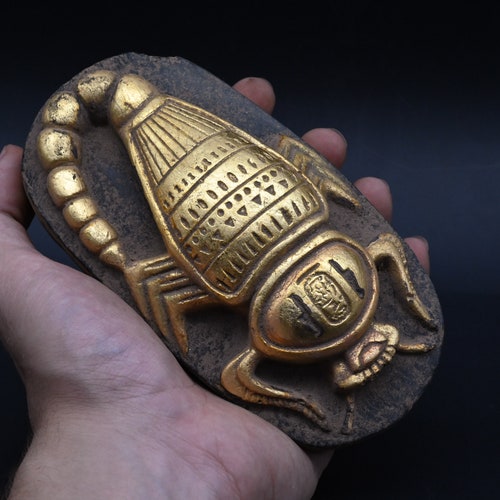weight: 0.665 kg
Welcome ! It is our pleasure to provide you with buy reproductions of Pharaonic inspired by the Ancient Egyptians. None of our products are antiques; they are modern creations inspired by ancient ones. All our pieces are hand, Egypt, including the base materials
We welcome you to ask questions about any of our products prior to purchase. The shipping process takes 3 to 5 days via DHL. Additional details can be confirmed with us directly before placing your order.
Please visit our store to check out other items for sale!
Thank you for shopping at our store.
History
Scarabs were popular amulets and impression seals in Ancient Egypt. They survive in large numbers and, through their inscriptions and typology, they are an important source of information for archaeologists and historians of the ancient world. They also represent a significant body of ancient art.
For reasons that are not clear (although no doubt connected to the religious significance of the Egyptian god Khepri), amulets in the form of scarab beetles had become enormously popular in Ancient Egypt by the early Middle Kingdom (approx. 2000 BCE) and remained popular for the rest of the pharaonic period and beyond. During that long period the function of scarabs repeatedly changed. Primarily amulets, they were also inscribed for use as personal or administrative seals or were incorporated into jewelry. Some scarabs were apparently created for political or diplomatic purposes to commemorate or advertise royal achievements. By the early New Kingdom, heart scarabs had become part of the battery of amulets protecting mummies.
From the middle Bronze Age, other ancient peoples of the Mediterranean and the Middle East imported scarabs from Egypt and also produced scarabs in Egyptian or local styles, especially in the Levant.
Product code: Egyptian art serket the Scorpion goddess Sculpture 2 buy style stone made in Egypt





